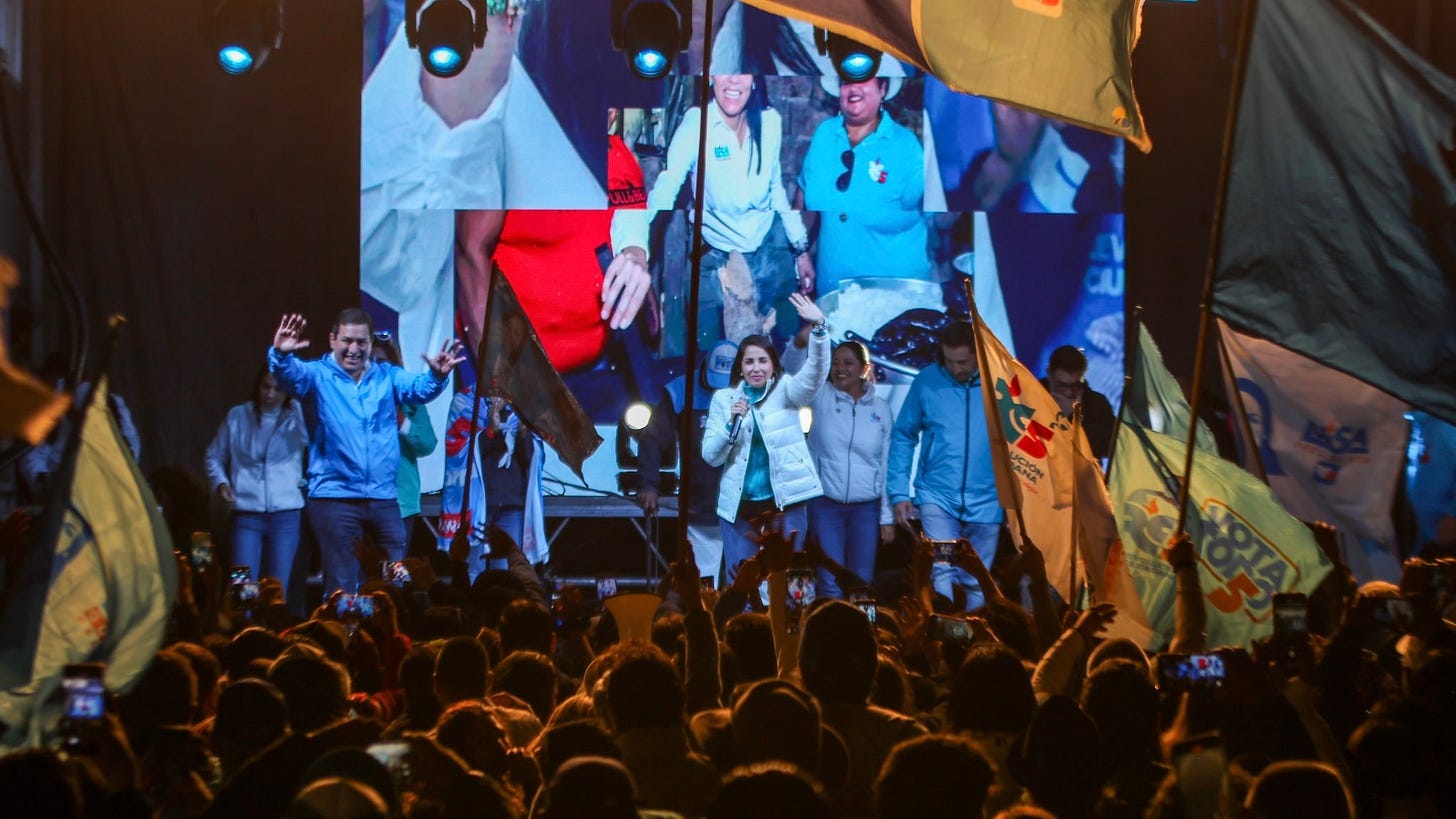
On Sunday 1 October, Luisa González of the left-wing Citizens Revolution Movement party (RC) and Daniel Noboa of the right-wing National Democratic Action (ADN) alliance took part in a debate ahead of the October 15 runoff election in Ecuador.
The debate was organized by the National Electoral Council (CNE) and was broadcast on national television and on the social media accounts of the CNE. The debates between presidential candidates are considered as important as they could be decisive in defining the results of the runoff election.
González, a lawyer and protégé of former president Rafael Correa, and young businessman Noboa debated on the economy and security as well as social and political issues, and outlined their government plans.
Economy
Noboa talked about the need to reduce fuel prices as well as that of electricity services. To that end, he vowed to invest in improving electricity generation and refining crude oil domestically. He also suggested lowering taxes for companies that create jobs, and promised to attract foreign investors.
González pointed out that there is a budget deficit of 5 billion USD and stressed that the solution to the problem would not happen overnight. She vowed to overcome it with a comprehensive social approach and investments in education, health, security, employment, and the environment. She promised to invest 2.5 billion USD from international reserves in productive loans to reactivate local economies, increase oil production, and reduce inefficient tax exemptions by 30%.
Noboa tried to attack González about the position of the Puebla Group, of which Correa is a member, on promoting de-dollarization in the region. González responded that she would strengthen dollarization, and clarified that what the Puebla Group suggested was the use of alternative currencies to the dollar in international trade, and it does not imply a plan to de-dollarize the Ecuadorian economy.
She highlighted that the Citizen Revolution promoted at the legislative level the establishment of the dollar in the Constitution of Ecuador as the currency of the country, an initiative that did not have the vote of the then assemblyman Daniel Noboa. She also reminded Noboa that, as president of the Parliamentary Commission for Economic Development of the National Assembly, he traveled to Russia to explore options for trading with payment methods or forms other than the dollar.
In this regard, Ecuadorian researcher Pilar Troya explained that “the word de-dollarization has two meanings de-dollarization: one, what they said in the Puebla Group and the BRICS, to use the dollar less for international trade, and the other, what the vast majority of people understand in Ecuador, that the country should stop using the dollar as its currency and return to the sucre.”
“This is impossible in practical terms and has never been a proposal of the RC, but this is a fear of the population that the right-wing likes to stir up. So they put up a photo of Correa at a meeting of the Puebla Group where they talked about de-dollarization in the first sense to say that the second is what will happen,” she added.
Security
With regard to the issue of security, González stressed on the importance of the state controlling the use of its resources, fighting corruption, making the judicial system transparent, and better equipping the national police. She promised to regain control of public spaces such as ports, airports, roads, and prisons to confront the gangs. She also said that she would fight crime by tackling poverty while creating jobs and opportunities for young people.
Noboa presented his security plan called Fénix and explained that it involves militarizing the borders and taking other measures to ensure security. He said that he planned to classify gangs as “narco-terrorists” and proposed floating prisons at sea for the most dangerous inmates. He also stressed on the importance of increasing the vigilance of citizens. He acknowledged that there are ministers and public officials who have close ties with criminal groups, and that they need to be brought to justice.
Social policies
In terms of social policies, Noboa talked about increasing investment in the health and education sectors. He said that he would provide a bonus for pregnant women, breakfast, and lunch in schools, and implement a daycare program for the children.
The candidate of RC, González seconded her opponent, adding that her government would resolve the lack of medicines in hospitals, hire 2,000 doctors, improve healthcare facilities and care for child malnutrition.
Regarding education, Noboa proposed declaring the Internet as a basic service with universal access as well as the creation of telematics careers, technical schools, and facilities to help enter university education.
Meanwhile, González indicated that she would increase the education budget, increase quotas in universities and introduce career training programs that can be studied virtually. She also said she would create an alternative to the entrance exam for higher education.
Political issues
With respect to the issue of migration of Ecuadorians, González stressed that work must be promoted domestically to reduce the phenomenon and ensure attention of migrants abroad. In foreign policy, González said that she would respect Ecuadorian international trade agreements and that would approach both Colombia and the United States to strengthen strategic ties.
In his turn, Noboa once again stressed that his government’s backbone will be security and the reduction of violence, for which he proposed holding a popular consultation in his first 100 days in office to approve the most urgent measures in this matter.




